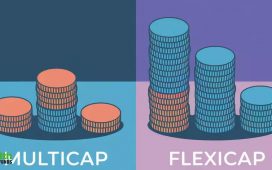The speed of this growth and the differences in the methodologies of these ratings can be problematic, and as such the UK government is taking steps to bring this sector into the regulatory regime. This is a positive first step, but with the consultation recently closing, we now await what the final rules for the industry will look like.
From the consultation, there is a clear emphasis that regulation is going to focus on the transparency of the methodology used by these ratings firms, rather than creating a uniform approach.
Investment Week reveals winners of Sustainable Investment Awards 2023
This is a good move, as each firm will have their own specialisms and it is important to allow this nascent industry to develop and find a harmonised approach that will be beneficial in the long-term.
But transparency is only one element in all of this. This regulation needs to put accountability on an industry that has so far lacked it, and bring it more in line with the rest of the asset management community.
To date different methodologies have produced diverging results and as such puts into question how much can we trust the data being presented.
While it is all well and good having it spelled out in black and white how a methodology has been constructed, we also need to know what the limitations of the data are, particularly when proxy data are being used.
For example, data on smaller companies can be lacking and as such it should be made clear that a rating for a particular company may not consider the full picture.
It is this lack of clarity that can also feed down into the fund level too.
For example, an investment fund might achieve an A rating (i.e. very good) from a provider, yet this may only be based on a proportion of the assets held within the fund, while the unrated elements (owing to data inadequacies) are invested in holdings which may be contradictory to that overall rating.
With the FCA’s Sustainability Disclosure Requirements also imminent, if we are to fight off the threat of greenwashing, these inconsistencies need ironing out.
The SDR regulation will ultimately underpin much of this oversight, and as such private investments must also be added to the list of what comes into scope.
With the proposed ‘impact’ label within the SDRs, a significant focus is being placed on private investments and as such, the ratings of these companies cannot be ignored simply because it is not a traditional asset class or easily measurable.
Much of this comes down to disclosure. That is what is going to help drive trust, not only between the asset managers and the ratings providers, but also with the end consumer.
Enhanced disclosure can help in many ways too.
Currently, data providers do not have a global framework with the result that each will interpret information in diverse ways and will have different biases as to how they weigh the underlying factors behind that score.
It should, therefore, fall on an investment manager to provide more detail explaining this, as well as explaining the data providers that are being used.
Peeling back the greenwash: the FCA’s vote reporting template for asset managers
It is also widely acknowledged that relying on one data provider is far from best practice due to these skews in the data and the fact that much of the data are qualitative in nature. Investment firms should use multiple sources of data and explain how it does so and how these are weighted.
Consequently, the score from a third-party data provider reflects their view of the underlying holdings within a portfolio.
It does not reflect the work undertaken by the investment firm regarding ESG integration (including identifying risks and opportunities related to ESG factors), as well as the voting and engagement that has been or will be undertaken.
It ignores intentionality and the active ownership a fund manager may be carrying out. Again, placing a focus on explaining what the score is and importantly what it isn’t will help investors understand the overall story being told.
We would also welcome more clarification on whether the disclosure should identify when ESG assessments are generated by an algorithm and, if so, the methodology behind this.
With the growth of artificial intelligence and the concerns this has brought, it would make sense to get ahead of this issue now, rather than be reactive on it.
With SDR just around the corner, it would be easy for this regulation to simply fly under the radar.
Given its interaction with SDR this regulation will be crucial and thus needs to be detailed to help push the fight against greenwashing further forward.
Trust is difficult to build, but easy to destroy. Accountability and disclosure will be critical and cannot just be skin deep.
Marisol Hernandez is head of responsible investment at Quilter Investors











